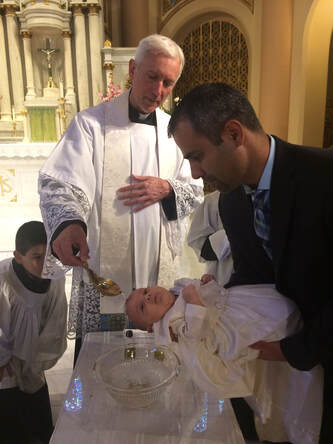
The third Sunday of Lent brings us the wondrous fourth chapter of St. John, the Samaritan woman at the well. It is a love story, a story where false, empty, bitterly-failed love meets true, deep, and joyously perfect love. The story has a happy ending, and it is the story of humanity.
The Well near Sychar
Our Lord sits down at a well, near a town called Sychar, in the heat of the day. A lone woman is there, and he asks her for a drink. Jesus is thirsty. Mother Teresa described the thirst of Jesus: “I Thirst is something much deeper than Jesus just saying ‘I love you.’ Even more—he longs for you. He misses you when you don’t come close.” I am the needy one, Jesus tells the woman. Their conversation begins badly, and as we will see this woman has good reasons not to trust men. But she responds to Jesus’ kind authority and begins to realize that she is desperately needy herself. Jesus gently uncovers her bleeding wound, her failed attempts at love. She has had six men, all of whom have used her. Jesus’ gently and even humorously prompts her to face herself: “you are right in saying you do not have a husband—you have had five husbands and the one you are living with now is not your husband….” The woman (isn’t it strange that no one knows her name?) must wondering what’s the use of pretending with a man who can tell me “everything I’ve ever done”? She gives in: “Sir, I can see you are a prophet” and then asks the fundamental question, “on what mountain should we worship?” In other words, where is God? How can I find Him? How can I find love? And Jesus simply says, I am the God, I am the Man, I am the love you have been looking for since you were a little girl. At these words, she drops her bucket by the well and runs back to town. She doesn’t need well water anymore. She’s found a living spring of water in Christ.
Baptism and Eucharist
Today four people—Richard, Wilson, Amanda, and Joel—will undergo a short “scrutiny,” the first of three, to prepare for their baptism in four weeks, at the Easter Vigil. Baptism will give them what this woman found at the well near Sychar, a fountain of living water welling up inside them to eternal life. Baptism restores our original nature by cleansing us of original sin, which has marred the image of God within us. The waters of baptism reconcile us to God our Father. These waters, however, are only the beginning of our journey into God, not the destination. Baptism prepares us for that destination, the Sacrament of Sacraments, which is the Holy Eucharist. If Baptism makes us what we are, Holy Communion makes us what we are not. In the Eucharist, we become what we receive, which is God himself. We become divine as God brings us into his Mystical Body. God thirsts for this union, and every human love and longing is an echo of that essential thirst at the center of creation.
“Jesus thirsts for you … always, even when you don’t feel worthy,” wrote Mother Teresa. “Until you know deep inside that Jesus thirsts for you—you can’t begin to know who He wants to be for you. Or who He wants you to be for Him.” Our Lady first heard those words from the Cross—I thirst. She knows. She knows who Jesus wants to be for you, and who He wants you to be for Him. Go with her to the Cross, and give our crucified Lord something to drink, from you own heart.


 RSS Feed
RSS Feed